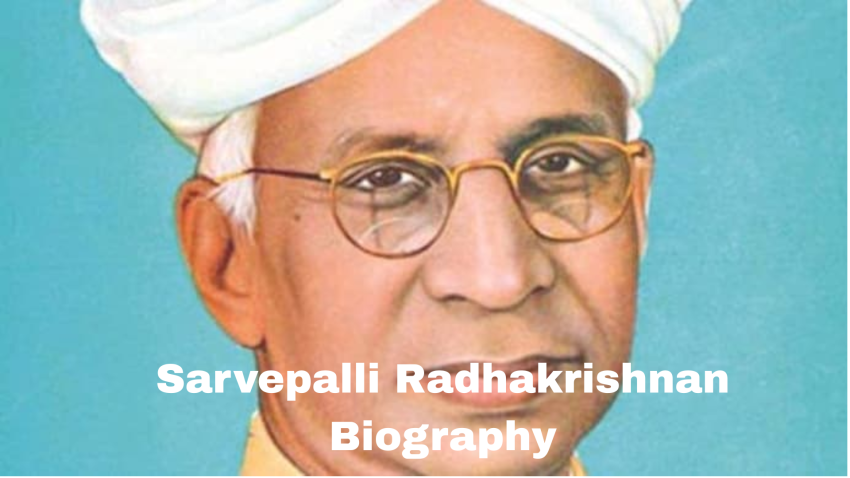Sarvepalli Radhakrishnan Biography
Sarvepalli Radhakrishnan is remembered as one of modern India’s foremost philosophers and educators who bridged Eastern and Western thought.
Revered for his scholarly writings on Vedanta and comparative religion and for promoting the value of education, Radhakrishnan became the second President of India (1962–1967) after careers as a teacher, university vice-chancellor, diplomat and vice-president. His birthday, 5 September, is celebrated across India as Teachers’ Day in his honor.
Profile Data
- Full Name: Sarvepalli Radhakrishnayya (commonly Sarvepalli Radhakrishnan)
- Stage Name: Unknown
- Born: 5 September 1888.
- Age: Died at 86 (17 April 1975).
- Birthplace: Tiruttani (Thiruttani), Madras Presidency, British India (present-day Tamil Nadu).
- Nationality: Indian
- Occupation: Philosopher, academician, teacher, statesman
- Religion: Hindu (Vedantic tradition / Indian philosophy).
- Parents: Sarvepalli Veeraswami and Sithamma.
- Siblings: One of six children (fourth born).
- Spouse: Sivakamu (m.1903; died 1956).
- Children: Six (five daughters and one son, Sarvepalli Gopal).
- Relationship: Married (arranged marriage at a young age).
Early life and education
Born in a Telugu Brahmin family in Tiruttani on 5 September 1888, Radhakrishnan spent his childhood in a devotional temple town environment where religious practice and Sanskritic learning were present alongside colonial-era Christian mission schools. He attended Voorhees College and Madras Christian College (BA, MA), and began developing his interest in Vedanta and comparative religion.
Academic career and philosophical contributions
Radhakrishnan was a career academic long before he became a public statesman. He taught at Madras Presidency College, Maharaja’s College, Andhra University and later became Vice-Chancellor of Banaras Hindu University. Internationally, he held the Spalding Chair of Eastern Religions and Ethics at Oxford University and lectured widely. His scholarship helped introduce Indian philosophical traditions to Western audiences.
Philosophically, Radhakrishnan interpreted Vedanta in an idealist mode and emphasized the moral and spiritual dimensions of life, urging synthesis between Eastern and Western approaches.
Major works (select)
- Indian Philosophy (2 volumes).
- Eastern Religions and Western Thought.
- The Principal Upanishads.
- The Bhagavadgītā — translation and commentary.
Political & public life — diplomat, vice-president, president
Radhakrishnan served as India’s Ambassador to the Soviet Union (1949–1952), the first Vice-President of India (1952–1962) and the second President of India (1962–1967). He used public office to champion education, intercultural dialogue and ethical leadership.
Awards, honours & legacy
He received the Bharat Ratna (1954) and the Templeton Prize (1975). His birthday is celebrated as Teachers’ Day (5 September) in India in recognition of his lifelong commitment to teaching and education.
What made his philosophy distinctive?
- Bridge-building approach between East and West.
- Focus on ethical living and the moral life.
- Comparative method and emphasis on synthesis.
Influence on education and public life
As a university leader and head of state, Radhakrishnan urged higher standards for teachers, improved curricula, and public reverence for educators. His ideas still inform debates about values in education.
Timeline (concise)
- 1888: Born in Tiruttani.
- 1936–1952: Spalding Chair at Oxford.
- 1949–1952: Ambassador to the Soviet Union.
- 1952–1962: Vice-President of India.
- 1962–1967: President of India.
- 1975: Received Templeton Prize; passed away.
FAQs
Why is Sarvepalli Radhakrishnan celebrated on Teachers’ Day?
His birthday, 5 September, was chosen to honor teachers across India after his own suggestion that his birthday would be better used to honor the teaching profession.
What were his main philosophical viewpoints?
He championed Vedanta in dialogue with Western philosophy, emphasizing ethical life and comparative study.
What is his most important book?
Indian Philosophy (two volumes) is considered a foundational text.
Conclusion
Sarvepalli Radhakrishnan’s life united scholarship with civic dignity. A philosopher who served as a teacher, diplomat, vice-president and president, his writings and public advocacy for education and intercultural understanding remain a vital part of India’s intellectual and civic heritage.
